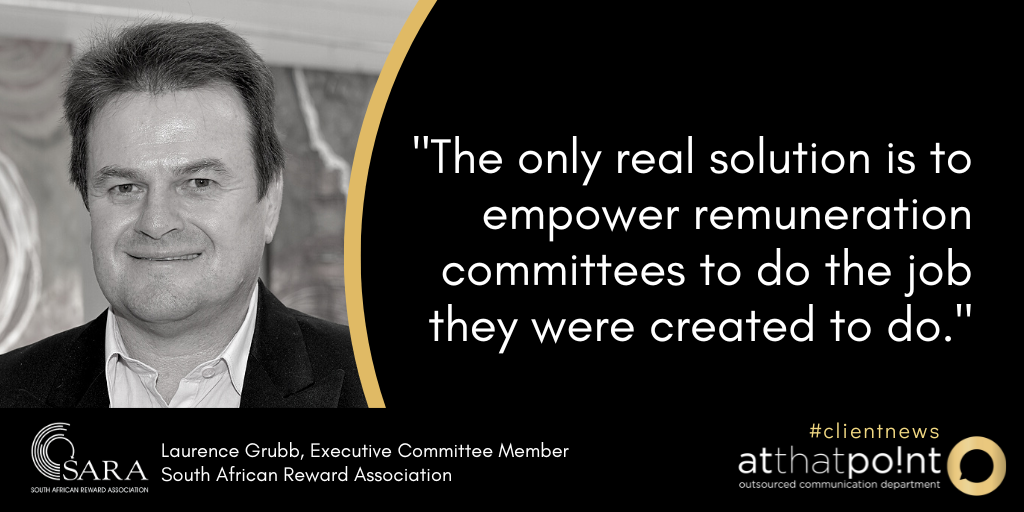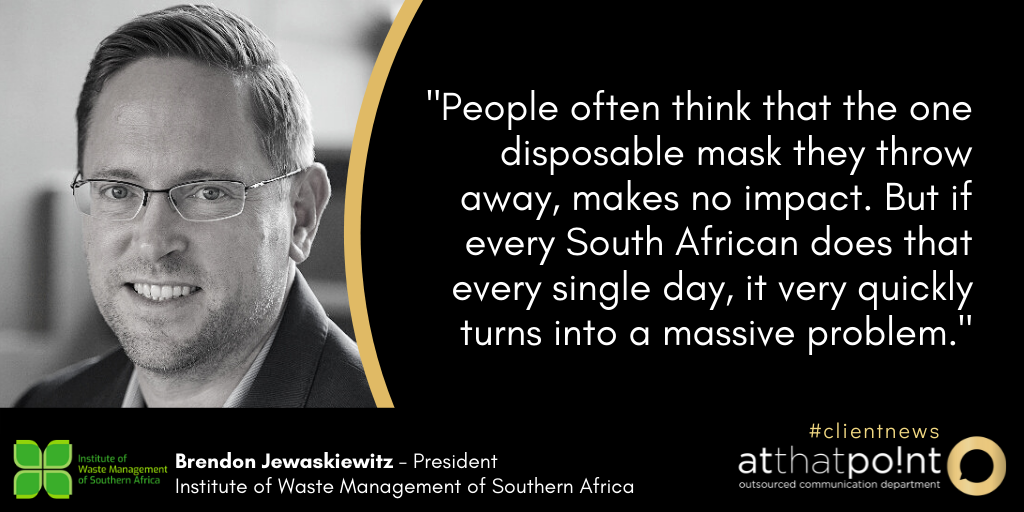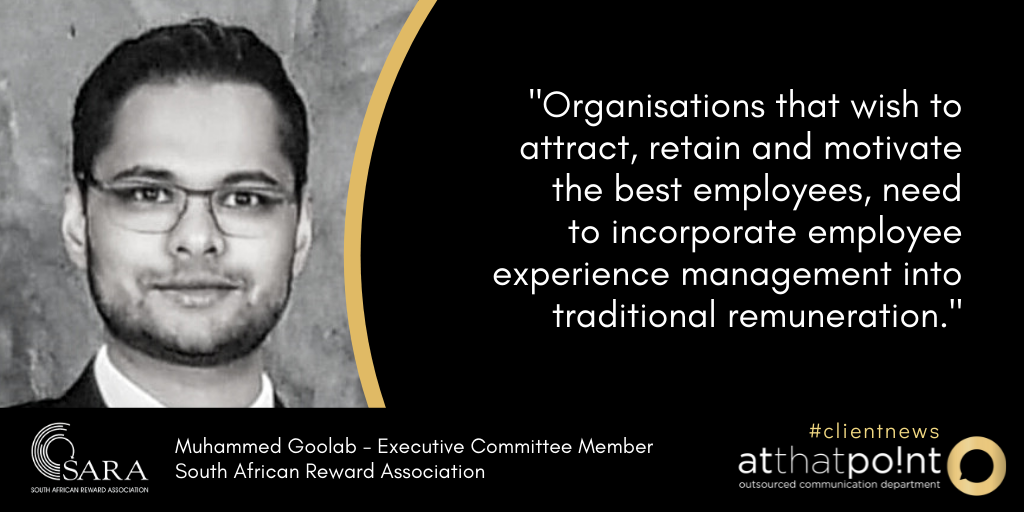 Stronger remuneration committees are the solution to rampant executive pay. This is according to Laurence Grubb, Master Reward Specialist and Executive Committee Member at the South African Reward Association (SARA). "We're seeing an imbalanced power dynamic between high-performing executives who associate significant rewards with the value they deliver and RemCos with structural expertise gaps that cannot assertively counter their demands," he says. Grubb suggests that alternative remedies are likely to do more harm than good. The danger of a binding vote The majority of South African businesses try to abide by the King IVTM code of corporate governance to achieve balanced and appropriate outcomes for executives, shareholders and other stakeholders. Yet, some CEOs, CFOs and executives continue to extract excessive remuneration from their companies. However, they have often built the enterprise from scratch or led it to significant growth, making them key to their company's success. So they may control the balance of power with a Board and Remco not willing to cross them. One suggested approach is to afford shareholders a binding vote that could deny gratuitous executive rewards, but Grubb says this is risky. "These leaders are the drivers of the business's growth and if their expectations are not met, they could move on and leave the Board to find a suitable successor, the impact of which will normally be a decline in the share price" says Grubb, noting that similar scarce talent might be impossible to find. Consequently, shareholders may end up shooting themselves in the foot. Rethinking the RemCo A better solution is to equip the RemCo with the necessary expertise to rationalise, negotiate and even restructure proposed packages in a way that satisfies of all parties. This requires that the committee augments its competencies with a deeper knowledge of current remuneration trends, industry standards and competitive best practices. To facilitate this solution, SARA is developing masterclass webinars and live sessions aimed at RemCo members, as well as other executive and non-executive directors, to enhance their understanding of executive remuneration. In addition, King IV suggests that the committee invites an external advisor to guide it in its duties. Executives will often hire remuneration consultants to help them determine the highest reward opportunities for their position. Their justification for greater compensation will be informed by data, industry benchmarks and practices and broader insights. RemCos without similar independent expertise will be left at a disadvantage. "In an ideal world, King IV might recommend a Master Reward Specialist as a standing member in all RemCos, allowing them to bring remuneration expertise, independent views and industry best practices to the negotiation," says Grubb. A real solution While most South African businesses have roped in runaway executive earnings, some executives continue to enjoy astronomical rewards. Many proposed solutions – like more onerous regulations or a binding vote for shareholders – may have unintended consequences which would prove to be negative in the long run. "The only real solution is to empower remuneration committees to do the job they were created to do," says Grubb. Most of all, they must be able to challenge the CEOs and executives who, up to now in some companies, have retained the balance of power in their struggle for greater rewards. ENDS MEDIA CONTACT: Rosa-Mari Le Roux, [email protected], 060 995 6277, www.atthatpoint.co.za For more information on SARA please visit: Website: www.sara.co.za Twitter: @SA_reward LinkedIn: South African Reward Association Facebook: SARA – South African Reward Association
0 Comments
Moving from remuneration to employee experience
"In today's competitive job market, organisations that wish to attract, retain and motivate the best employees, need to incorporate employee experience management into traditional remuneration," says Muhammed Goolab, Senior Reward Specialist and exco member at the South African Reward Association (SARA). A new perspective While traditional remuneration packages will continue to be the foundation for attracting critical talent, modern job seekers are looking for more than money and standard benefits. In addition, they want purpose, support and fulfilment in their work. This has been particularly important for millennials who value flexibility, life experiences and freedom to act. They are also a generation with strong social awareness and the image that organisations project both internally and externally is especially important to them. This trend requires that employers change the way they think about rewards. Instead of hiring against what talent their business operations need to keep running, they should start focusing on the people who drive those processes forward. "If you take care of your people, they will take care of your company," says Goolab. What is employee experience management? Employee experience management (EXM) is about creating a good first and lasting impression from the time a prospective hire reads your job ad, during the recruitment process, throughout their onboarding and journey with your company, and right up to the day they leave. That's because, these days, even your farewell process is open to scrutiny on social media, where word of poor employment practises gets around quickly. EXM is not only concerned with employee wellbeing and workplace comforts but embraces a holistic, multifaceted approach to overall employee satisfaction, forming a more complete total reward offering. This can include employees identifying positively with your brand, recognition of their achievements, whether or not you use the latest technologies and your level of innovation, your societal values, the company's leadership, work-life balance and flexible working arrangements, skills development and career progression, and more. "In a post pandemic world, it will be important for employee experiences to translate well and cohesively outside of the physical office and into work-from-home and other flexible arrangements," says Goolab. Why EXM? EXM is part of the larger experience management (XM) function within modern companies, which includes employee experience, customer experience, product experience and brand experience. In bigger organisations, XM is led by the Chief Experience Officer (CXO). Research shows that employees who enjoy good experiences at work contribute positively to a better customer experience, resulting in increased revenues and an improved financial position for their employers. So while EXM is a concerted effort to better attract, retain and motivate skilled employees, it holds proven strategic benefits for companies that implement it. Rather than a rigid checklist of to-dos, EXM is a dynamic management function akin to internal marketing or PR, aimed at convincing staff they chose the right employer. At the same time, it must develop real experiences that workers truly value, so frequent employee engagement is a must. "Employers can no longer simply outbid each other because the currency of a new generation of employees is values they can relate to and respect for their needs as human beings," says Goolab. EXM and reward professionals Whether an organisation has an EXM function or not, its reward professionals will inevitably be involved in or responsible for employee experience development. "Reward practitioners are ideally positioned to help employers craft a strong employee value proposition that expresses worker expectations as well-defined and meaningful experiences," says Goolab. Enterprises that adopt this new approach to reward will have a competitive advantage over employers who continue to focus on redundant ideas about what employees really want from their jobs. ENDS MEDIA CONTACT: Rosa-Mari, 060 995 6277, [email protected], www.atthatpoint.co.za For more information on SARA please visit: Website: www.sara.co.za Twitter: @SA_reward LinkedIn: South African Reward Association Facebook: SARA – South African Reward Association  The Covid-19 pandemic has brought about the most flexible period in terms of employment and remuneration practices ever experienced. Companies reacted swiftly to the impact of the pandemic on the workplace and their ability to pay and retain staff. This has never happened in the past, says Yolanda Sedlmaier, Chartered Reward Specialist and executive committee member of the South African Reward Association (SARA). Companies who were already struggling pre-pandemic, paid lower incentive bonuses to their executive and pay increases across board ranged between 0% and 5%. Moral approach However, Covid-19 brought about a far greater moral approach to executive pay and incentives. For many companies, bonus payments for past performance (pre-Covid-19) were put on hold, delayed, cut or reallocated from May last year. “Many companies opted to reallocate some of the money into a company fund to assist staff who ran out of leave and were not able to return to work because of the hard lockdown during the initial stages of the pandemic.” Sedlmaier says the same happened in terms of leave. Companies requested employees who had a lot of leave to sacrifice it in order to allocate it to people who ran out of leave during the hard lockdown. Some companies actually benefited financially due to the pandemic, such as telecommunication and pharmaceutical companies. The demand for computers, data and airtime soared as people shifted from the company office to the home office. Several tech companies were in the position to continue paying their staff as usual, including bonuses. “However, several were circumspective in terms of paying bonuses or giving increases, as they felt a moral obligation not to do so while thousands of people were losing their jobs,” says Sedlmaier. “We are seeing more of that this year. Companies who were still paying bonuses in March last year were more circumspect this year. Covid-19 has certainly impacted on the morality of paying large bonuses in difficult times,” she notes. Retention measures Company executives were “expected” to take pay cuts for a period of at least three months last year, and in some cases the period was extended. Other companies offered all staff a three-month unpaid sabbatical or offered them reduced pay for reduced output. Many companies are quite wary about the possible impact of the third wave. Some have started increasing the number of people working on-site again, but with the third wave they experienced an increase in Covid-19 cases and are re-evaluating these arrangements further. Although there has been a slight pick-up in economic activity recently, the third wave is affecting everyone. “There is a possibility for more job losses,” says Sedlmaier. Future trends
ENDS MEDIA CONTACT: Idéle Prinsloo, 082 573 9219, [email protected], www.atthatpoint.co.za For more information on SARA please visit: Website: www.sara.co.za Twitter: @SA_reward LinkedIn: South African Reward Association Facebook: SARA – South African Reward Association Why it’s important for reward professionals to stay on top of industry trends |
Archives
March 2023
Welcome to the South African Reward Association newsroom.
Categories
All
|



 RSS Feed
RSS Feed